From the Chicago Reader (November 1, 1996). — J.R.

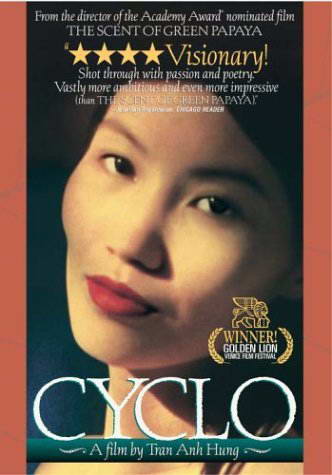

Cyclo
Rating **** Masterpiece
Directed and written by Tran Anh Hung
With Le Van Loc, Tony Leung-Chiu Wai, Tran Nu Yen Khe, Nguyen Nhu Quynh, Nguyen Hoang Phuc, and Ngo Vu Quang Hai.
Tran Anh Hung’s first feature, The Scent of Green Papaya, redefined what we mean by “inside” and “outside,” architecturally as well as socially and psychologically. The same could be said about the vastly more ambitious and even more impressive Cyclo, which was shot in Ho Chi Minh City — unlike The Scent of Green Papaya, which was shot in a studio outside Paris — and is set in the present.
The Scent of Green Papaya — the first and so far only Vietnamese film ever nominated for an Academy Award — was inspired by the filmmaker’s memories of his mother and was set in 1951 and 1961. Tran said that his next feature would be based on recollections of his father. This led me to expect another period film, which Cyclo isn’t — but there’s no question that it’s a film about patriarchy. The first and last things the 18-year-old hero (Le Van Loc) says offscreen concern his late father — a pedicab driver who was run over by a truck — and there’s the sense throughout that he’s stuck in an endless cycle of male misery passed from one generation to the next. Read more
From the Chicago Reader (January 16, 2004). — J.R.
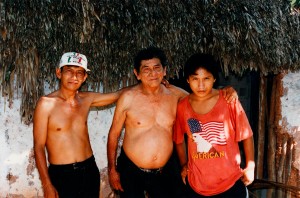
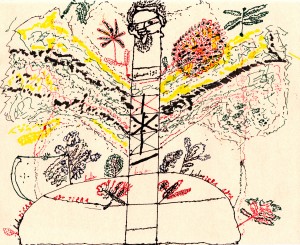
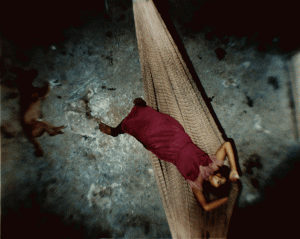
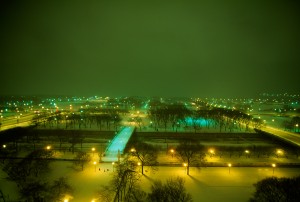
A world premiere of the first feature by Peter Thompson, perhaps the most original and important Chicago filmmaker you never heard of, showing with one of his best shorts. Over a decade in the making, El Movimiento (2003, 90 min.) follows the relationship between Don Chabo, a Mayan shaman in Yucatan, and William F. Hanks, the Chicago anthropologist he improbably selected as his sole apprentice, showing how both men think, work, and dream. Thompson’s skill as a poetic organizer and interpreter of disparate materials is even more apparent in his mysterious and provocative Universal Hotel (1986, 28 min.), which tracks his detailed research into photographs of a freezing and thawing experiment conducted in Dachau with a German prostitute and a Polish prisoner. Apart from offering fascinating glimpses into alternative medical practices, both films are profound meditations on the passage of time. (JR)
Read more
From Film Quarterly, March 2007, vol. 60, no. 3; reprinted in Goodbye Cinema, Hello Cinephilia. Obviously some of this is out of date by now. — J.R.
There’s a part of me that understands perfectly why a
minimalist like Jim Jarmusch and a 19th century figure like
Raul Ruiz won’t have anything to do with email. “You can’t
smell email,” Ruiz once said to me, to explain part of the
reason for his distaste. But I find it tougher to feel
nostalgic about film criticism before the Internet, because
even though you could smell it, the choices of what you
could lay your hands on outside a few well-stocked
university libraries were fairly limited. Similarly, the
choices of what films you could see outside a few cities
like New York and Paris before DVDs was pretty narrow, and
possibly even more haphazard than what you could read about
them.
These two developments shouldn’t be considered in
isolation from one another. The growth of film writing on
the web —- by which I mean stand-alone sites, print-magazine
sites, chatgroups, and blogs —- has proceeded in tandem with
other communal links involving film culture that to my mind
are far more important than the decline in the theatrical
distribution of art films and independent films, so I’ll be
periodically discussing those links here. Read more








